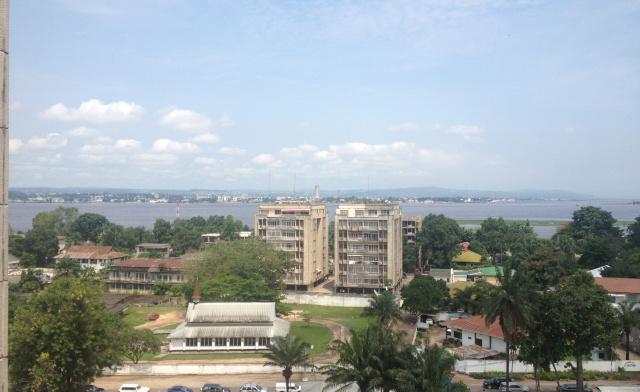South Africa election shakes major parties but little more
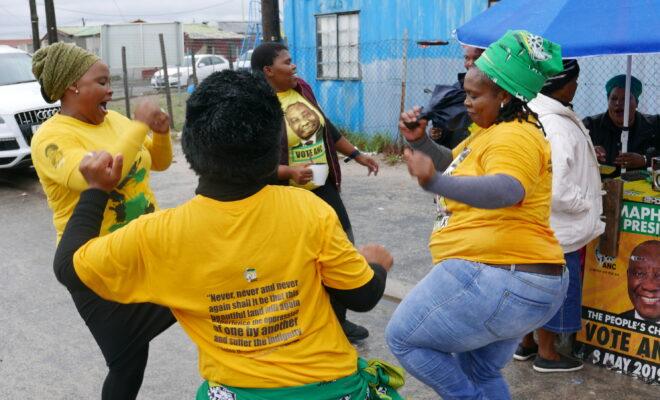
The results from the 8 May general elections suggest the ruling ANC and main opposition DA retain widespread, if reluctant, support.
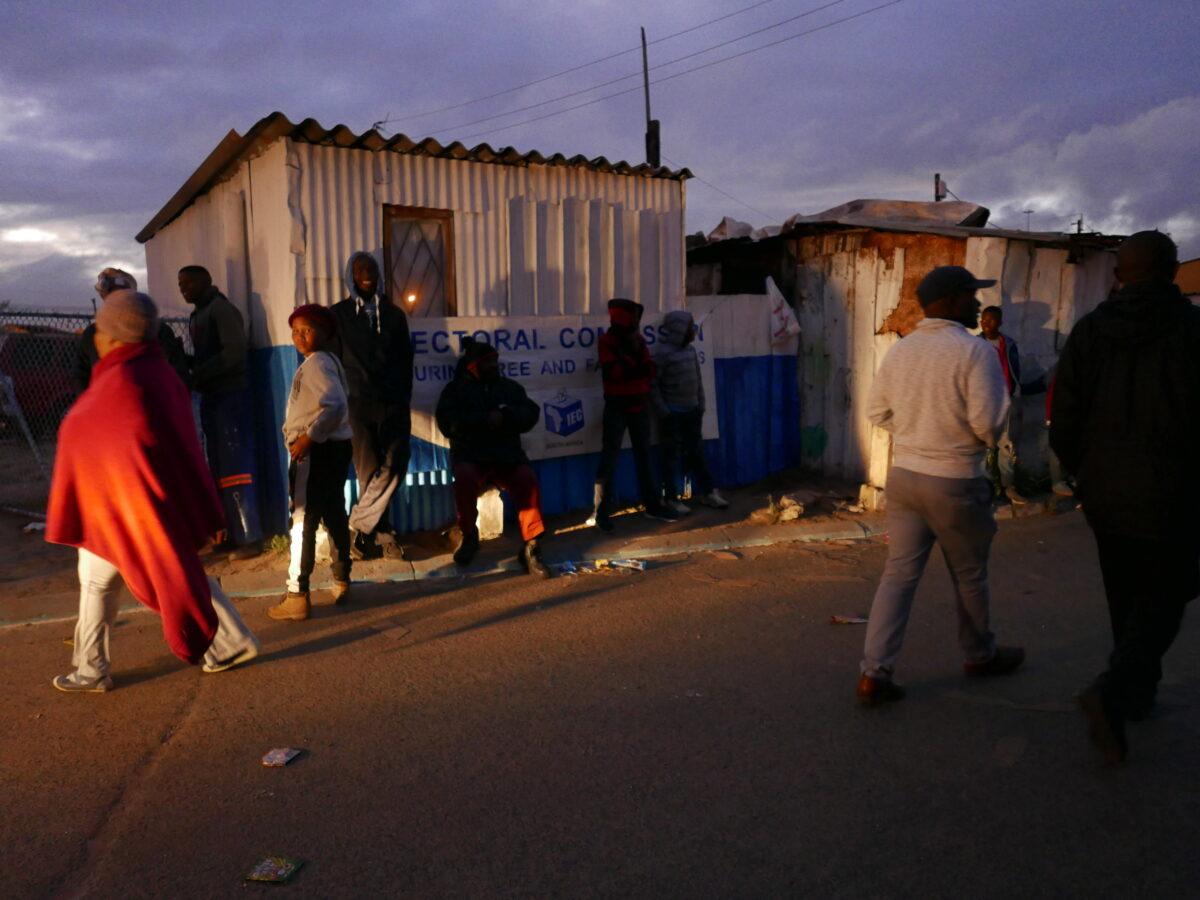
South Africa results: Night falls on Voting Day in South Africa’s 8 May general elections. Credit: Martin Plaut.
Khayelitsha is the sort of place tourists seldom visit, perhaps accelerating a little nervously to get past it on to the famed vineyards and classy restaurants that lie just outside of Cape Town in South Africa. It’s a pity.
Set just beyond the Cape Town airport, Khayelitsha it is home to over 400,000 people. It is a “township” in South African parlance, where mostly black Africans live, packed in between the main road and the sea. Much of it consists of small, official housing with the edges still made up of shanties (or “informal housing” as they are politely termed).
In reality, this is the city of Cape Town’s other half, the place where most black people arrive when they take the plunge and leave the poverty and corruption of the Eastern Cape in search for a job. But far from being a place of despair it is a lively place, where people jostle for space. Cows’ heads and chicken feet are barbequed by the side of the road. Unofficial workshops spring up, making everything from furniture to window frames. Khayelitsha is a pulsating, noisy suburb that seldom sleeps.
I was here during the last election in 2014. Politically a lot has changed since then. This was once a stronghold of the ruling African National Congress (ANC). When I drove around it five years ago, the main opposition Democratic Alliance (DA) had few if any posters up on the lamp posts. Those that had been put up had been torn down and lay on the streets, stamped on.
In 2019 by contrast, they could be seen in almost equal numbers as the ANC’s. DA volunteers sat at every polling station; their t-shirts are worn as indiscriminately as those of every other party.
With the DA’s normalisation here, however, the party has lost something of its cutting edge. It is no longer an insurgent party and the results of the 8 May election perhaps reflect this. Although it may take another day before the full results are verified, over 80% of results have been declared and assuming no last-minute major shift, the parties know how they have done.
The ANC of President Cyril Ramaphosa has 57% of the vote (down 5% on 2014); the DA has 22% (perhaps 0.5% down on 2014); and the Economic Freedom Fighters (EFF) of Julius Malema has 10% (up 4% from 2014). The ANC will run the country and be the largest party in the key province of Gauteng in which Johannesburg is situated. The DA still holds the Western Cape and its stronghold of Cape Town. The EFF can celebrate its increasing support and the fact that it is the main challenger in three provinces: North West, Mpumalanga and Limpopo.
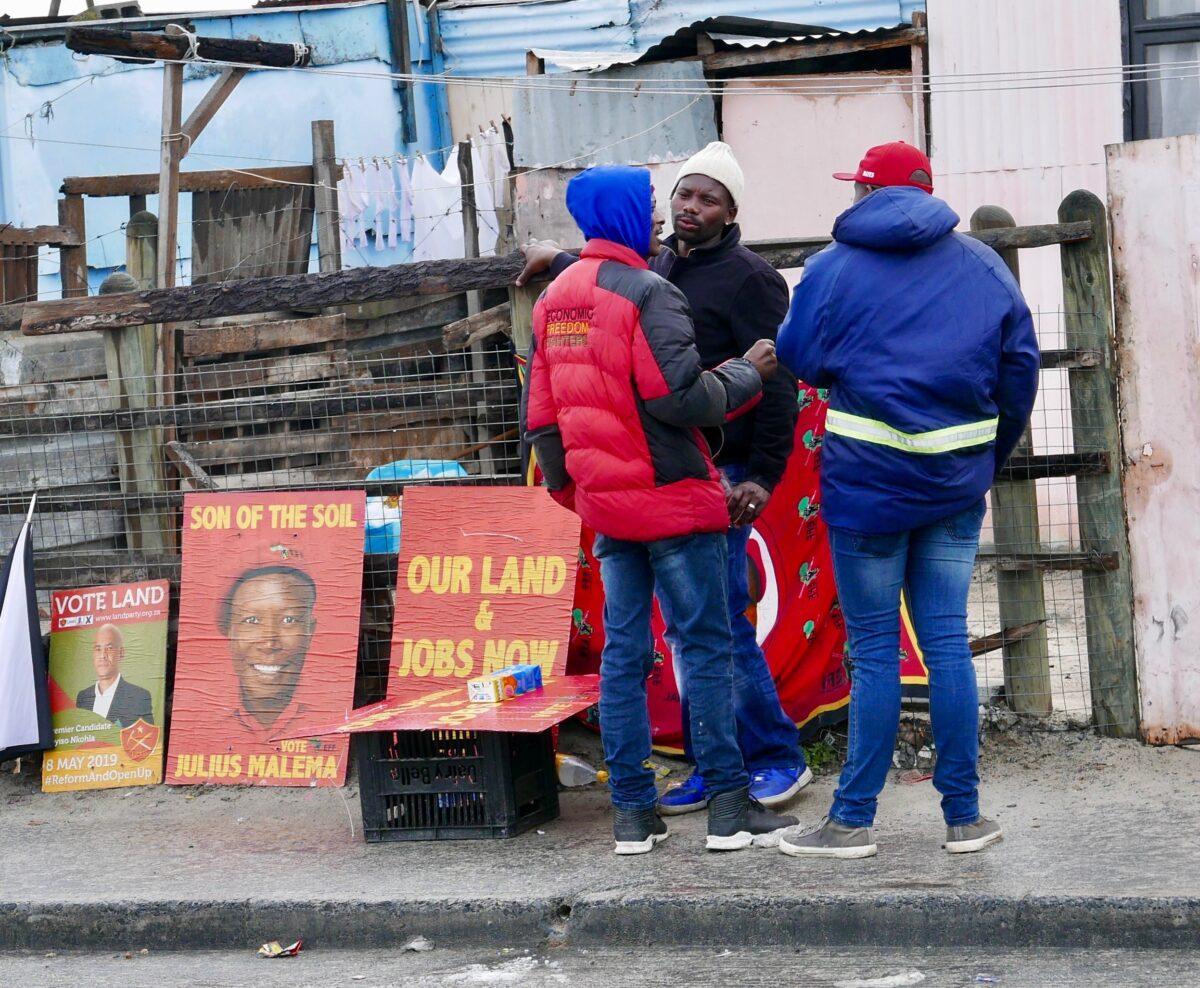
EFF supporters by party posters. Credit: Martin Plaut.
For President Ramaphosa, the result must come as a considerable relief. There had been talk that, following the scandals associated with his predecessor President Jacob Zuma, the party’s support might ebb away. Some quietly made predictions the ANC would get just 40%. But Ramaphosa, the darling of financial markets both in South Africa and abroad, has steadied the ship. He must now face the enormous task of reform.
In his massive final election rally, the president promised to keep anyone tainted by corruption out of his government. “Those will not be allowed to occupy positions of responsibility either in the ANC, in Parliament or in government,” he declared. How he will deliver on this promise is difficult to fathom given his very narrow majority within the ANC.
For Mmusi Maimane, the leader of the official opposition, the issue is rather different. The DA, which some believed was gradually emerging as a potential party of government, has ceased to grow. The party’s members are becoming restless and internal divisions are regularly reported in the media. In part, this is because the DA is at something of a crossroads. Should it continue to try to grow as the only significant party that appeals to all ethnic groups (something the ANC has long since ceased to do) or should Maimane seek to win over the growing black middle-class?
The DA’s attempts to woo black voters previously seemed to mean endorsing the government’s policies of black empowerment. This stance was dropped in February, but where exactly that left the opposition was unclear. “The party has not decided to move away from race-based redress policies, however, we unequivocally reject the ANC’s version of redress which operates to enrich and re-enrich the connected elite,” said Maimane. This satisfied neither constituency and led to further internal ructions.
The EFF is not the only party to have benefitted from this confusion. The right-wing white party Freedom Front Plus increased its support to 2.5% of the vote. With its slogan “Fight Back”, it appealed mainly to white Afrikaners who had previously seen the DA as their political home. The only other party to really put on votes is the mainly Zulu Inkatha Freedom Party, which is the official opposition in KwaZulu-Natal.
The vast majority of the smaller political parties received so little backing they will not be represented in parliament. This includes some parties that are regularly featured in the international media. Andile Mngxitama, whose party – Black First, Land First – demanded that black people should control all the land of South Africa received almost negligible support with just 0.1% of all votes.
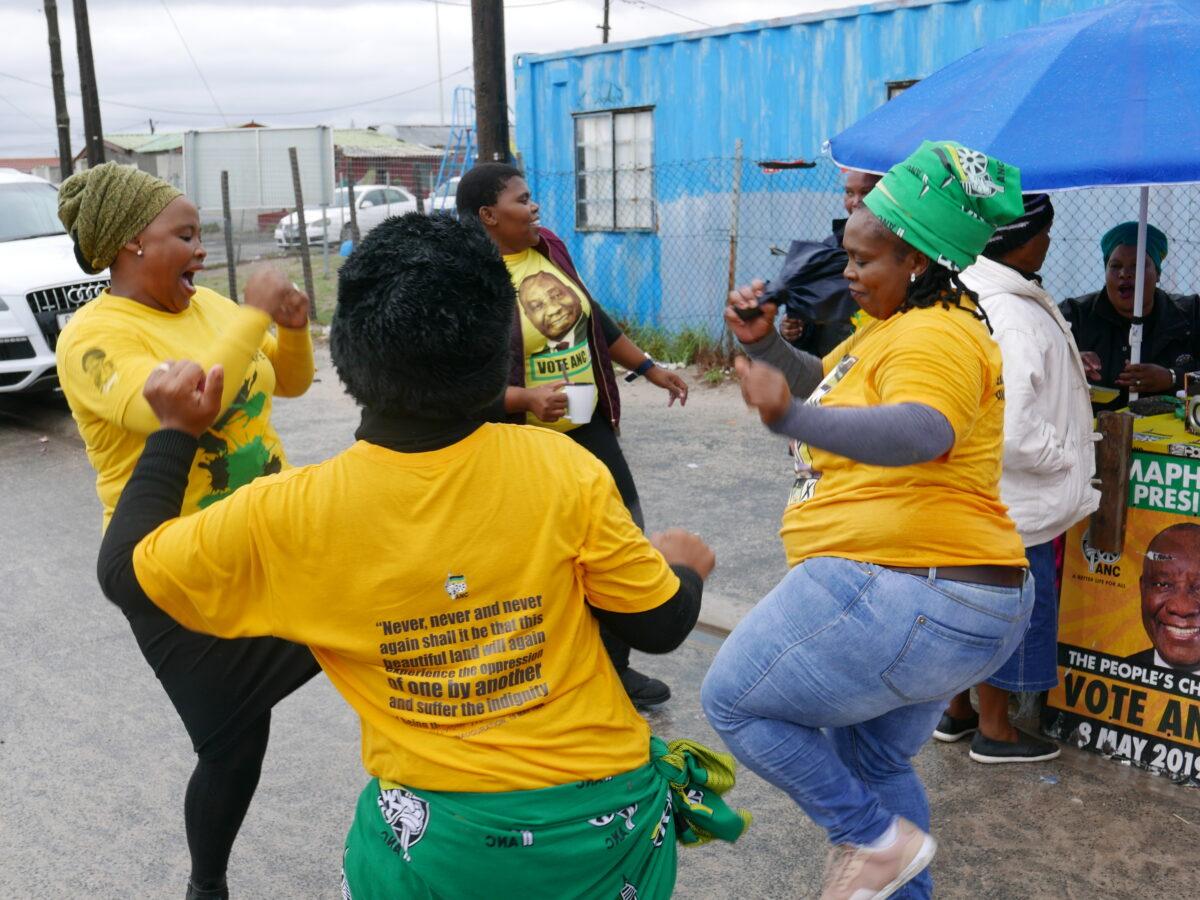
ANC supporters dance on Election Day in Khayelitsha. Credit: Martin Plaut.
South Africa’s just-concluded elections have shaken the larger parties without really eroding their positions. The ANC, with a century of fighting for black rights, still has huge – if somewhat reluctant – support.
There is at least one front, however, on which the ANC retains a clear lead. Its songs, drawn from its long years fighting apartheid, are way ahead. “The DA sent us CDs to play, but their music was terrible,” a DA activist admitted to me.
By contrast, ANC supporters danced and sang outside the polling booths as night fell on voting day. In some areas, this arguably came close to intimidation since they were right next to the queues of voters still waiting to cast their votes.
Janet Love, the Independent Election Commissioner, went on the radio in the week running up to the election, explaining that marches and demonstrations on Election Day were expressly forbidden. I tweeted a video showing just such a demonstration. Beatie Hofmeyr, the ANC’s representative with the Commission (and someone I went knew at university many years ago) replied that it’s not illegal. “Campaigning is allowed but not inside border of station which is fenced around in most cases,” she said. She claims only marches and public rallies are banned.
Illegal demonstration by ANC on Election Day outside a voting station Khayelitsha Cape Town pic.twitter.com/9KRPleBtmH
— Martin Plaut (@martinplaut) May 8, 2019
It’s a fine line. During the 2014 election I witnessed ANC activities which clearly went beyond it: trucks with speakers, hammering out slogans and songs, with hundreds following on behind. I witnessed none of this in Khayelitsha this year: perhaps the squalls of rain deterred such activities.
Overall, South Africa’s elections are well run and pass the “free and fair” test. Ballots may occasionally run out; some people voted more than once. But the 2019 election was – in my view – an accurate reflection of what the population made of their rulers. In the end, the voters gave them their support, a little reluctantly and nowhere near as enthusiastically as back in 1994. A quarter century of ANC rule has eroded the party’s standing, but it has not disappeared.


